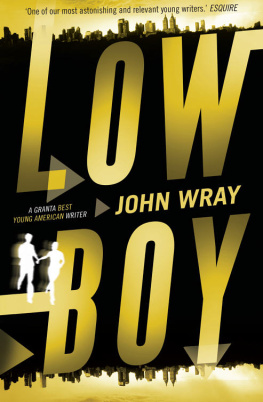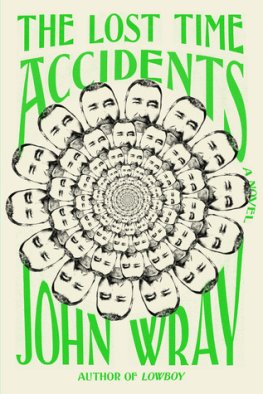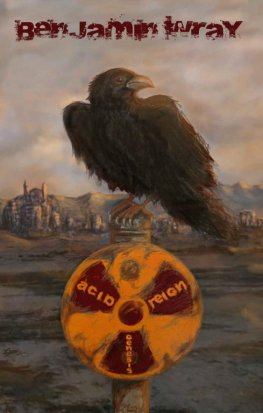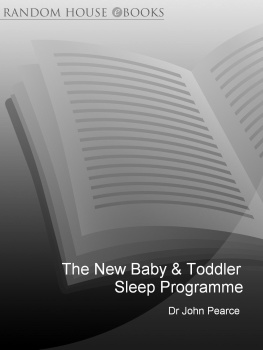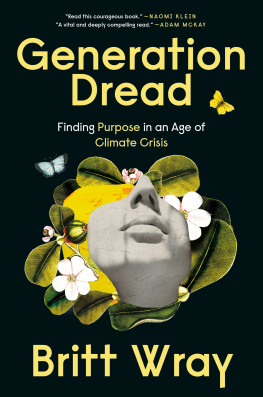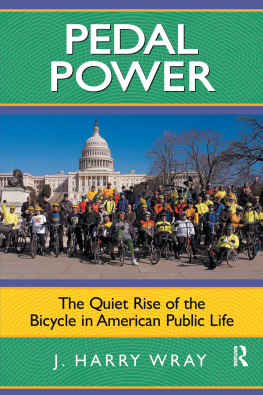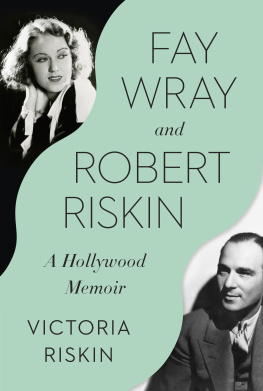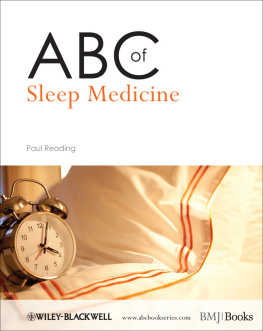John Wray - The right hand of sleep
Here you can read online John Wray - The right hand of sleep full text of the book (entire story) in english for free. Download pdf and epub, get meaning, cover and reviews about this ebook. year: 2002, publisher: Vintage, genre: Adventure. Description of the work, (preface) as well as reviews are available. Best literature library LitArk.com created for fans of good reading and offers a wide selection of genres:
Romance novel
Science fiction
Adventure
Detective
Science
History
Home and family
Prose
Art
Politics
Computer
Non-fiction
Religion
Business
Children
Humor
Choose a favorite category and find really read worthwhile books. Enjoy immersion in the world of imagination, feel the emotions of the characters or learn something new for yourself, make an fascinating discovery.

The right hand of sleep: summary, description and annotation
We offer to read an annotation, description, summary or preface (depends on what the author of the book "The right hand of sleep" wrote himself). If you haven't found the necessary information about the book — write in the comments, we will try to find it.
The right hand of sleep — read online for free the complete book (whole text) full work
Below is the text of the book, divided by pages. System saving the place of the last page read, allows you to conveniently read the book "The right hand of sleep" online for free, without having to search again every time where you left off. Put a bookmark, and you can go to the page where you finished reading at any time.
Font size:
Interval:
Bookmark:
Table of Contents
Acclaim for John Wrays
THE RIGHT HAND OF SLEEP
A breakthrough.... If the talent revealed in The Right Hand ofSleep has any staying power, Wray wont be leaving any time soon. Interview
Striking.... Wray writes with incredible precision and concentration... [and] with a light and graceful touch.
Harvard Book Review
A spare, elegant novel... an exploration of tribalism and its discontents. The Right Hand of Sleep is a tremendously accomplished debut. Bookforum
Assured and astonishingly mature.... Wrays first novel displays psychological acuity, a mastery of dialogue and an unfailing historical empathy, and should garner deserved raves.
Publishers Weekly (starred review)
The dislocations of peoples lives at the end of the Austro-Hungarian empire, and between the [world] wars, form an interesting territory.... The Right Hand of Sleep successfully conjures a feeling of menace. The Times Literary Supplement
Moving.... The rhythmic alternation between past and present is handled adroitly, and the soberly realistic scenes are enlivened by precise, evocative descriptive writing.
Kirkus Reviews (starred review)
John Wray
THE RIGHT HAND OF SLEEP
John Wray was born in Washington, D.C., in 1971, the son of an Austrian mother and an American father. His childhood was divided between the United States and Austria and he is a citizen of both countries. He was educated at Oberlin College and Columbia University, and has since lived in Texas, Santiago de Chile, and Alaska. A selection of his poems, The Hat I Wore When I Was Alive, won the Academy of American Poets Prize from New York University in 1997. A passionate fisher, record collector and mountaineer, Mr. Wray lives and writes in Brooklyn, where he is currently at work on a novel based on the life of the notorious antebellum outlaw John A. Murrell. The Right Hand ofSleep is his first novel.
A message was taken ahead for me By the right hand of sleep: Blue ruined hills, Right-handed sky, Coming home to you fills me With a vast sickness.
P. Lederer
... and in the matter of the as-yet-unresolved murder case in Niessen bei Villach, the direction of inquiry will come as no surprise to keen followers of history...
Villacher Tageblatt, September 8, 1938
NIESSEN
OCTOBER 12, 1917
A boy came out of the house first, the crumbling, sun-yellowed house with the dark tiles and ivied sides, the peaked roof and sandstone steps down which he went stiffly, nervously, adjusting the plaid schoolboys backpack on his shoulders. A tall stooping boy in his middle teens, smiling to himself as he waited by the gate, breathing quickly. It was a bright fall day and he closed his eyes for a moment, feeling the sunlight through his eyelids there at the gardens edge.
Soon the others came, a man and a woman, the parents of the boy. The man moved slowly, his cream-colored suit well ironed but billowy, as though cut for someone larger. His features like his clothes seemed oversized or borrowed, a loose cluster of tics behind which his eyes hung uncertainly, moving from the boy to the trellises to the old house behind them. The woman walked half a pace behind the man, guiding him by the elbow down the steps. She was still young. She carried herself proudly and severely. Hearing them the boy opened his eyes. He was still smiling slightly, and looking at them as he smiled, but the smile was not meant for them and when he realized this he drew his lips together. He stood at the gate for what seemed a very long time, watching them coming. Finally they reached him and the three of them went out onto the street.
Linking arms they walked toward the mortared gray wall of the canal and the brightly colored rooftops behind it. A smell of woodsmoke was in the air. At the canal they left the road and turned onto a narrow lane. The woman was watching the boy silently, her left arm braced against her husband. He and the boy were talking to each other in low, even tones, but she was not listening to them. The mans eyes as he spoke were not on the boy or on the ground ahead of them but instead on some far-off thing, as they always were. The boy talked on, not listening to the talk itself but talking only to fill the minutes, eyes rarely leaving his fathers face. From time to time he let out an embarrassed laugh.
After some minutes they came to a wide gravel avenue curling out from town over a mortared bridge. They stayed there awhile looking down into the water. Before long a young, doughy-faced man came up the avenue on a bicycle. The woman waved to him and he pulled up in front of them.
Well, Oskar, said the man, grinning down at the boy. Your numbers come up at last, has it?
Yes, Uncle.
Yes. Well, were damn proud, all of us. Hopping proud.
Were not proud at all, Gustl, said the woman.
The man on the bicycle grinned again. Mothers take these things hard, old man, he said, tapping the boys shoulder. We have all of us our burthens, as the ditty goes.
Why arent you in Italy yet, Uncle? said the boy.
Palpitations, Oskar. You know very well. Palpitations, damn them. He sighed. Still. Theres need of good men on the home front as well, as the Kaiser says. Eh, Karl?
The boys father made a low sound, possibly of assent, looking down the avenue through the lines of whitewashed willow trunks toward the station.
Wed best be going on, Gustl, said the woman quietly. Youll be round tonight for supper?
Yes, yes, Dora. He drew in a breath, looked down at the boy and gave a wink. Well, Oskar: do your duty by those greasy olive-pickers. Stack em straight for your nearest and dearest.
Thats enough, now, Gustl, said the woman. God in heaven.
Good-bye, Uncle. Ill do my best.
Damn right you will.
The train, Dora, said his father, stepping forward.
Walking down the Bahnhofstrasse with his parents on either side of him, hurrying to the station, the boy was struck for the first time by the significance of what was happening to him and looked back often over his shoulder. Framed by the cut-back willow rows, encircled and held toward the sun by the mountain behind it, the town looked like nothing so much as an antique jewelers miniature, sliding away with a clicking of wheels and cogs into the pines. He realized that it was beautiful and at the same time that it was vanishing from his life. His mother was talking to him now, rapidly, urgently; his father was walking as quickly as he was able, wheezing and opening his eyes wide with every breath. It occurred to the boy that he hadnt looked at his mother since theyd left the house and he knew this must hurt her but still he could not do it. I know what she looks like, he thought. I know what she looks like right now. I dont need to see her.
Have you taken enough warm things, Oskar? she was saying. Have you taken enough winter clothes?
Maman, he said, laughing a little. I cant wear just whatever I like, you know. Theyll be wanting me in a uniform. He looked over at his father, who nodded gravely.
His mothers voice resumed immediately, tight with worry, humorless. Do you find this so very funny, Karl?
A little funny, Dora. Not so much.
I was thinking more about your underclothes, Oskar, his mother said, pulling him forward. His father let out a quiet laugh behind them.
At the station the boy presented his conscription card and was issued a ticket. There were a number of other families on the platform but he stood with his parents a small distance away, looking in the direction from which the train would come. One of the women was sobbing noisily and clutching at her two sons, twins with thick shoulders and flattened reddish hair who muttered and made faces at each other.
Next pageFont size:
Interval:
Bookmark:
Similar books «The right hand of sleep»
Look at similar books to The right hand of sleep. We have selected literature similar in name and meaning in the hope of providing readers with more options to find new, interesting, not yet read works.
Discussion, reviews of the book The right hand of sleep and just readers' own opinions. Leave your comments, write what you think about the work, its meaning or the main characters. Specify what exactly you liked and what you didn't like, and why you think so.

